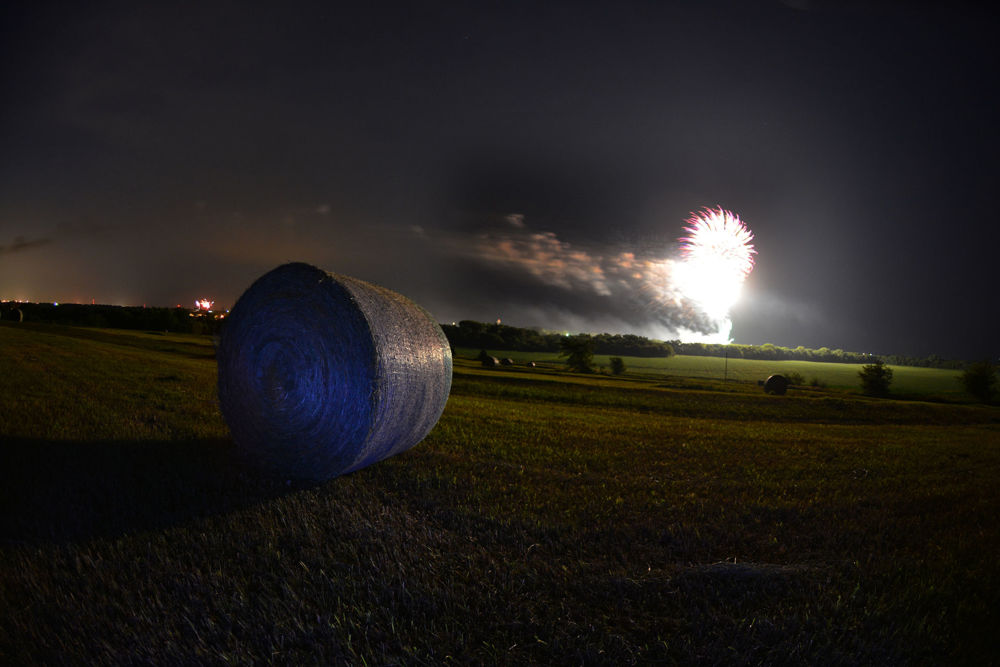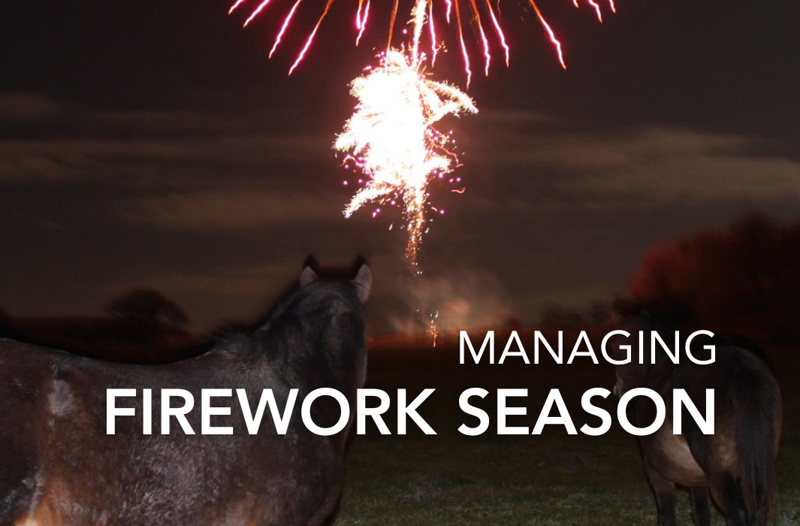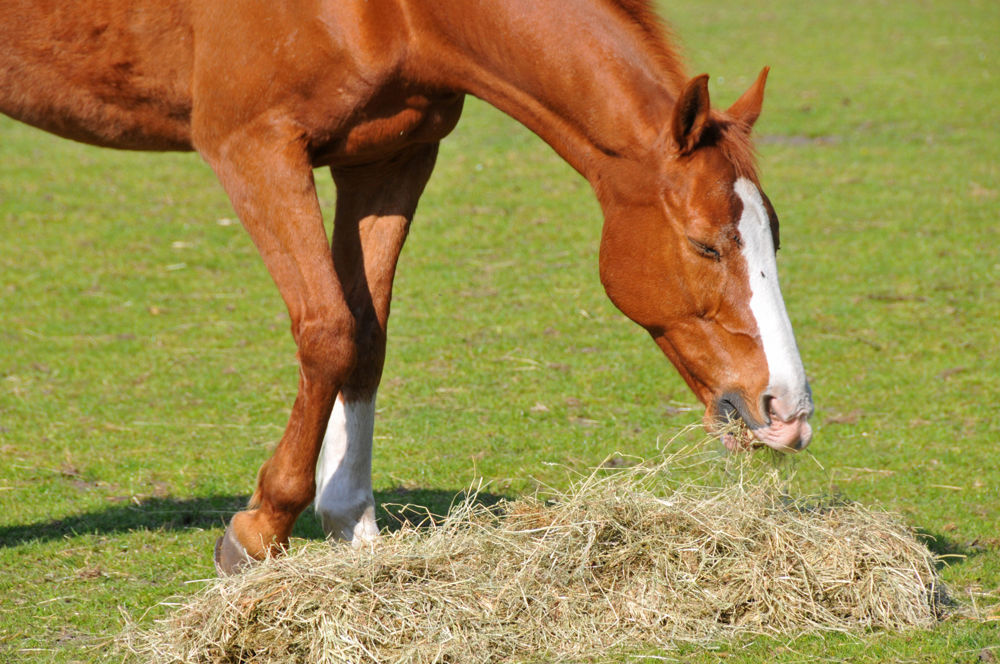Fireworks can be a very distressing experience for our horses, and consequently for us as owners too. Preparing in advance can help us feel less anxious and ensure we’re giving our horses the best chance of coping well in this potentially highly stressful situation.
While bonfire night on the 5th November is most often associated with fireworks, they are becoming increasingly common at other events starting as early as Diwali and Halloween at the end of October, going through to Christmas and New Year and potentially Chinese New Year celebrations at the end of February. Bear in mind too, that where these celebrations fall midweek, there are likely to be displays going on over the weekends before and after. Keeping an eye on local news, community noticeboards, Facebook groups and similar can be a good way to find out when and where fireworks displays are likely to be happening.

Preparing in advance:
-
Check stables, yards and fields thoroughly for anything that could cause injury to a startled horse eg; sharp protrusions, string, bucket handles. Ensure any fencing is secure and there are no foreign objects in the fields.
-
Check higher up than you ordinarily would, especially in stables and around the yard. Consider putting padding over any stable beams that your horse could reach if s/he rears.
-
Put rubber matting down on any surfaces that may be slippery for a panicked horse.
-
Consider feeding a calming supplement, ensuring it has enough time to take effect before fireworks season starts
-
Ensure your insurance, both for your horse and third-party liability, is up to date should the worst happen.
-
Ensure your yard has an emergency fire plan that everyone is familiar with.
-
If your horse likely to become particularly spooked speak to your vet about possible sedation or alternative options.
When it comes to preparing your horses, playing the radio and leaving the lights on if they are stabled can help make flashing lights less visible and dampen the loud bangs. Habituate your horse to having the radio on a high volume in the weeks prior to any fireworks. Start with the radio at a lower volume and gradually turn it up as they become more relaxed with the sounds.
During fireworks events:
-
Stay with your horses or check on them regularly throughout the night. If you aren’t available organise someone else to do this, and ensure they know where to find the vet’s phone number just in case.
-
Leave the radio and lights on.
-
If rugged, consider using a fleece or sweat-wicking layer under rugs to wick off any sweat caused by distress.
-
Provide Ad Lib hay or haylage to keep them distracted.
-
Ensure any exterior gates remain closed in case a horse escapes from the stable or field.
-
Have hats, gloves, sturdy boots at hand ready to deal with any anxious or stressed horses safely.
To stable or not to stable?
This is often a huge debate with no simple answer. Some horses feel safer stabled in a familiar environment where they can be kept with the radio and lights on to dampen loud noises and flashing lights. Others prefer to be in the field, where they feel as though they have the option to fulfil their natural desire to run away from anything threatening. Often, following your usual routine can help your horse stay more relaxed although if you know that your horse prefers to be out when they are usually stabled at night, it would be worth gradually changing their routine over a couple of weeks prior to planned fireworks events.
Whether the horses are stabled or turned out, check the yard and fields for any debris and give each horse a thorough check over for any cuts, bumps or scrapes first thing the next morning.
Summary
Fireworks can be a stressful event for horses, triggering their fight or flight response. To keep your horses safe, prepare in advance by checking for local events, securing their environment, maintaining routines, and consider using a calming supplement for additional support. On the day, distract them with forage, music and familiar surroundings to reduce fear. Afterward, inspect the area for debris to ensure safety. With proper planning and management, you can minimize distress and help your horses and ponies stay calm during firework season.




_370.png)